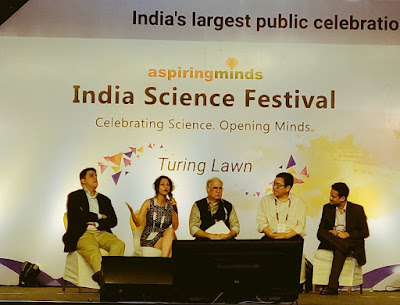Project leader for an UNESCO Report on prize-based incentives for innovations in ICT's in Education
In the next few months, I will be working on a UNESCO commissioned report on prize-based incentives to foster innovation in the area of ICT's in education. This is indeed timely as there is much hype on mobile-based learning and educating through gamification, particularly in developing countries. New technology again promises to come to the rescue by circulating hope in the midst of chronic failures in schooling in these contexts. With a majority of people in the global South gaining access to mobile phones, there is much proclamation that learning is now literally at their fingertips.
Since we cannot afford to have another 'lost generation' as the state fails the youth, funders are taking on the neoliberal approach to education, using financial incentives to capitalize on new ICT's to provide engaging and relevant e-content for these emerging platforms of learning. But are these incentives working to attract the best innovations in this field? What constitutes as sustainability in such schemes and is this coming at the cost of funding traditional modes of education? Is there an expectation that mlearning innovation will supplant traditional models of schooling? And who are the target audiences anyway for these innovations and is this overlapping with the actual gaps and inequalities within these societies? These are but a few questions one needs to tackle when approaching a project such as this.
Previously, I have worked on two major projects that were recipients of such prize-based incentives for innovation, namely the Development Marketplace Award for the Same Language Subtitling initiative on Bollywood songs to sustain neo-literacy by the Founder Brij Kothari. I have written a number of articles on the impact of SLS on literacy outcomes that can be accessed here. The second project was my critique of the much celebrated Hole in the Wall initiative by TED prize winner Sugata Mitra.
The bottom line is that today, the use of prizes to spur innovation in education has dramatically increased since the beginning of the millennium, but, to date, no organization has attempted to critically examine the impact these prizes have had on education. UNESCO proposes to fill this gap by conducting a landscape review of education prizes with an ICT focus. I will be taking the lead on this project, working with a promising young scholar Andrea Gudmundsdóttir as my research assistant. Should be a fun couple of months ahead!
 |
| At the UN Mobile Week in Paris with the UNESCO Secretary General Irina Bokova |
Previously, I have worked on two major projects that were recipients of such prize-based incentives for innovation, namely the Development Marketplace Award for the Same Language Subtitling initiative on Bollywood songs to sustain neo-literacy by the Founder Brij Kothari. I have written a number of articles on the impact of SLS on literacy outcomes that can be accessed here. The second project was my critique of the much celebrated Hole in the Wall initiative by TED prize winner Sugata Mitra.
The bottom line is that today, the use of prizes to spur innovation in education has dramatically increased since the beginning of the millennium, but, to date, no organization has attempted to critically examine the impact these prizes have had on education. UNESCO proposes to fill this gap by conducting a landscape review of education prizes with an ICT focus. I will be taking the lead on this project, working with a promising young scholar Andrea Gudmundsdóttir as my research assistant. Should be a fun couple of months ahead!



Comments
Post a Comment